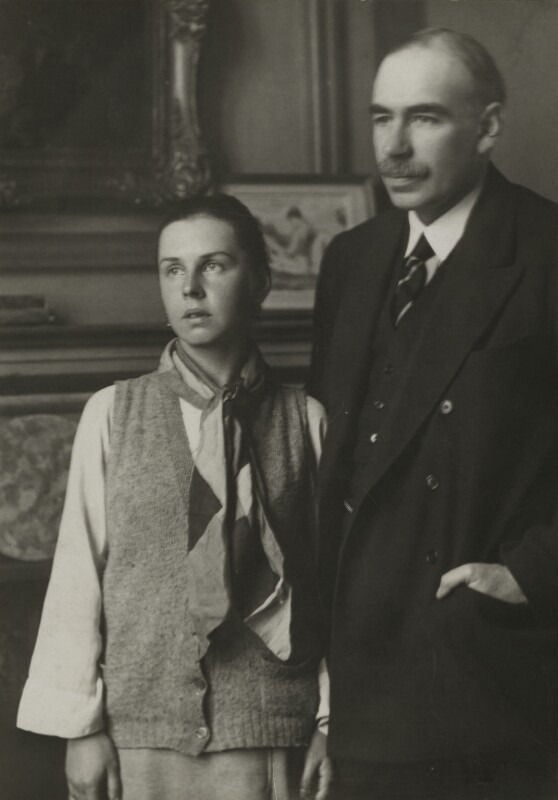people » John Maynard Keynes
John Maynard Keynes (1883-1946). British economist
To describe John Maynard Keynes as an economist is certainly true, but it hardly does justice to the breadth and depth of his intellect and achievements, or indeed to his worldwide influence throughout much of the 20th Century and beyond. ‘Keynesianism’ became and remains one of the major trends in economic thinking throughout the world.
Keynes was born in Cambridge in 1883 to a well-to-do, intellectual family. His own early ability in mathematics particularly led to his winning a scholarship to Eton in 1897. In 1902 he won another scholarship at Cambridge to read Maths, for which he took a first-class degree in 1904. While at Cambridge he showed considerable interest in philosophy as well as in Maths, and was a member of the Apostles, a somewhat select group who pursued advanced thinking and ways of living.
From 1906 until 1908, Keynes was a Civil Servant, returning to Cambridge in 1908 to work on economics. In 1909 he became a Fellow of Kings, principally as an economist. During World War One, Keynes advised the government on economic matters, and despite being a conscientious objector was appointed a Companion of Honour (CH) in 1917. After the War he was an advisor at the Versailles negotiations but deplored the severity of the reparations imposed on Germany by the subsequent Treaty.
Back in Cambridge in 1921, he published a major treaty on probability, and during the 1920s and 1930s developed the economic ideas, which have become known as Keynesianism. The General Theory of Employment, Interest and Money, his magnum opus, was published in 1936. Partly responding to the financial depression of the time, Keynes advocated government spending and acceptance of deficits to get the financial system moving, along with government intervention in industry and the economy. During the Second World War, Keynes advised the allies both in Britain and the United States of America and was influential in the Bretton Woods discussions, which paved the way for the World Bank and the International Monetary Fund. Keynes was created a hereditary peer (1st Baron Keynes) in 1942. He died in Tilton, his Sussex house, in 1946.
Apart from his economic and academic work, in his younger days, following his association with the Cambridge Apostles, Keynes was a member of the Bloomsbury Group of artists and writers that included Duncan Grant, Lytton Strachey, Vanessa Bell, Virginia Woolf and Clive Bell. As he later said, he was thoroughly committed to their free-floating attitudes to morality and to sexual relations, taking the pursuit of beautiful experiences to be the true end of human existence. He always had strong interests in the arts, including painting, literature and ballet. In relation to the last of these, in 1921 he fell in love with Lydia Lopokova the feisty Russian ballerina, and they married in 1925, a matter of some surprise to his fellow Bloomsburyites, who had supposed him to be homosexual. Keynes was a supporter of many progressive causes during his lifetime, including female and homosexual rights, and eugenics, for which he was the Director of the British Eugenics Society from 1937 until 1944. He was also a strong supporter of the Royal Opera House at Covent Garden, and the Sadler’s Wells Ballet. During World War Two he was on the board of the Committee for Education in Music and the Arts (CEMA), and was instrumental in setting up The Arts Council as the successor body to CEMA. He had just become its first Director when he died in April 1946.

